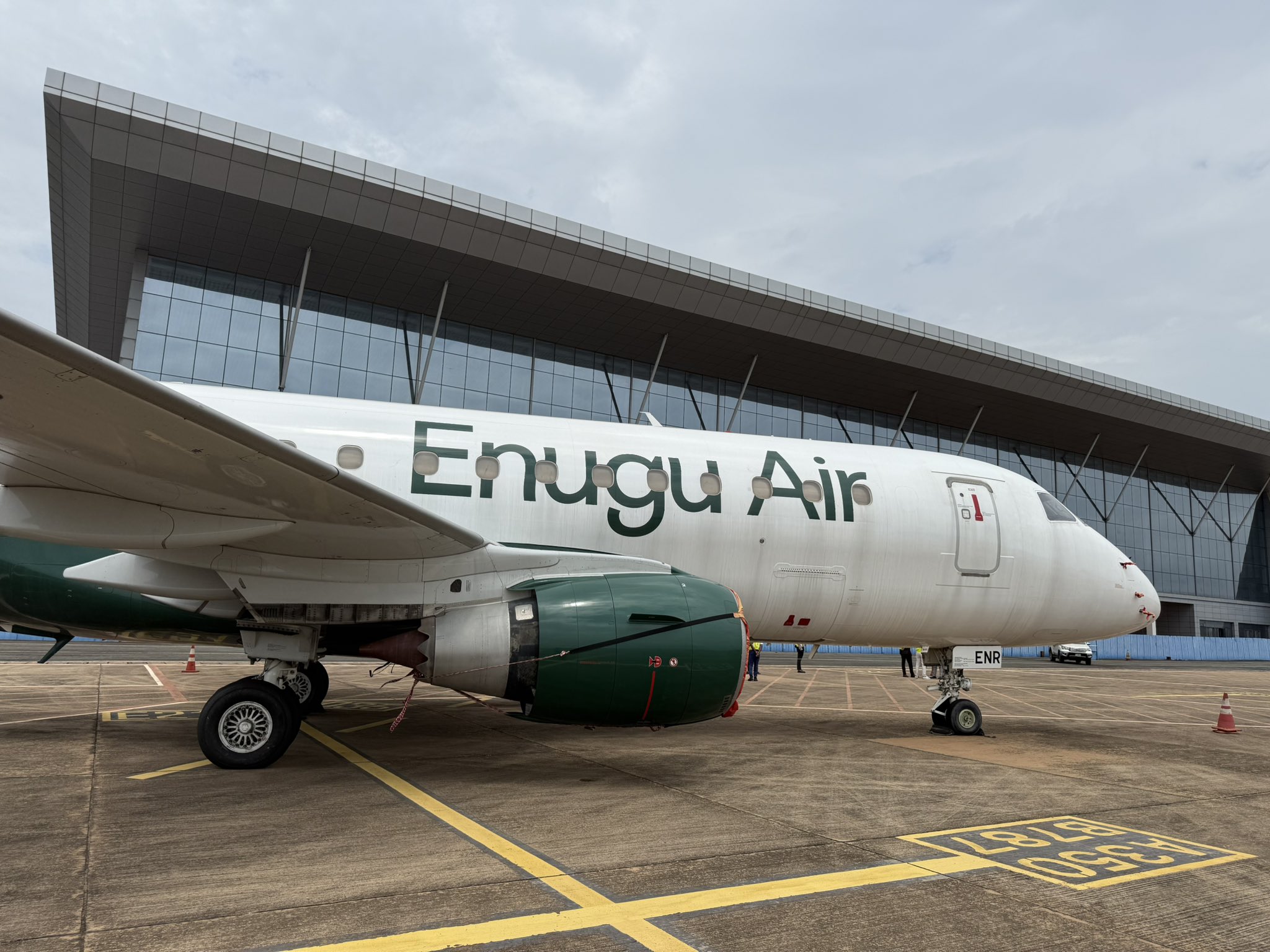Early last week, Enugu Air, a commercial airline introduced by the Enugu State Government, kicked off operation with three passenger jets by the Brazilian manufacturer Embraer. Speaking at the launch, Peter Mbah, the state governor, hailed the economic benefits of the state’s aviation plans, boasting that the airline would fly beyond Nigeria to “China, Europe, UK, US and other global hubs.”
But is launching an airline a smart investment of state funds? History offers some insights.
In 2017, Imo Air was floated by Rochas Okorocha, the then-governor of Imo State, as Nigeria’s first state-owned commercial airline. Okorocha explained that the airline had partnered with Dana Air on a ten-year contract, after which the state would take over control.
On January 24, 2017, Imo Air made its maiden landing at the Sam Mbakwe Cargo Airport in Owerri, where it was launched amid much fanfare. Nothing has been heard about the airline in the years since then.
Later, in 2021, Ben Ayade, the bombastic ex-governor of Cross River, commissioned Cally Air with only one aircraft. The airline was structured as a partnership between the state and Aero Contractors, a private airline, although Ayade maintained that it was “100% a property of the citizens.” But by 2023, reports emerged that the airline might cease operations owing to the state’s N900 million debt to Aero Contractors.
More often than not, as these instances reveal, government-owned airlines struggle to live past the hype. A medley of factors explain the reason for this. Start with the lack of an Air Operator’s Certificate (AOC), a sine qua non for airlines to operate independently.
Without an AOC, many state-backed airlines rely on a partnership with airline operators, which is typically referred to as a dry lease. This agreement allows for the state governments to provide only an aircraft to an established airline, which takes responsibility for additional services such as crew, maintenance and insurance.
A dry lease allows for a state government to launch new carriers as it completes the arduous certification process. However, with much of the revenue going to the operating airline, which bears the costs of operations, dry leases prove to be far less profitable for state governments.
Perhaps a more likely factor is the need for validation. Many airline projects by state governments are motivated not by realistic business policies but by a needy desire to be praised.
State-owned airlines can be likened to other white-elephant projects that are never followed through. Essentially, these carriers serve to launder the governor’s image by attracting widespread attention. Little wonder the launch of a state-backed airline is typically a flamboyant affair. Without a clear-cut business strategy in a challenging aviation industry, these airlines grapple with a myriad of inefficiencies and eventually grind to a reluctant death.
Ibom Air, launched by the Akwa Ibom State Government in 2019, counteracts this bad history of state airlines. Amidst unfavourable conditions that have pushed many commercial airlines, including the national carrier, out of business, the state-backed airline has maintained a daily revenue turnout of around N900 million.
Even though the airline’s trajectory has been bumpy, it has gleaned an edge over its competitors, thanks to its strong brand reputation built on reliability and punctuality.
In truth, managing a carrier in Nigeria today is no mean feat. From steep operating costs to stiff regulations, the hurdles are manifold. Unfortunately, some of them have taken a severe toll on the pockets of domestic air travellers.
In the last five years, airfares have surged astronomically—well beyond the reach of many middle-class Nigerians. An economy flight from Lagos to Abuja, which cost around N30,000 in 2020, now hovers around N200,000. Alongside the rising cost of aviation fuel, airlines blame this hike in ticket prices on depleting foreign exchange.
In response, the share of local air travellers is facing a steady decline, according to available data from the Nigeria Civil Aviation Authority (NCAA). Compared with the 16.2 million air travellers in 2022, the country recorded a total number of 15,895,265 passengers in 2023.
These figures pale in comparison to millions of air travellers in countries like Brazil, Indonesia and even Egypt.
As history shows, launching a state carrier is an uphill battle. Even a venture backed by a solid business strategy and expertise is vulnerable to external factors. Following the increased costs of operation and the decline in passengers, local airlines have struggled to stay afloat. Many have scaled back operations in most cities, prioritising high-traffic routes like Lagos and Abuja.
These are the daunting odds that Enugu Air must now navigate as it resumes flight operations. But Ibom Air’s continued success offers some dollop of inspiration.






